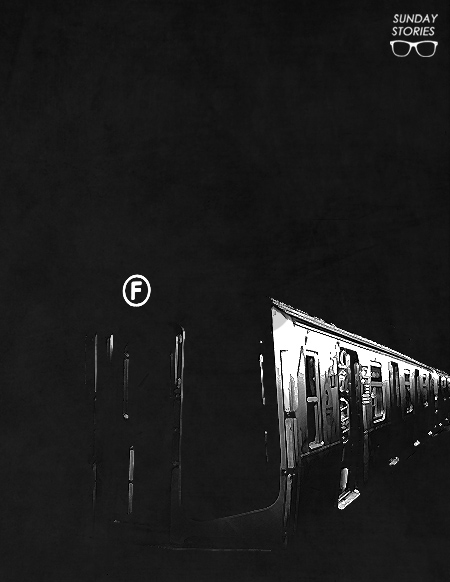City Dream
by John Duncan Talbird
In Forest Hills, Kelly’s mom fixed me stir-fried crab over rice noodles or steamed duckling with plums. I’d take seconds, but when she’d offer thirds, I’d say Naw and rub my belly.
We’d climb out on the fire escape to get away from the heat and Kelly would whisper, You should say No thank you. I’d trace that severe white part through the center of her black hair and she’d brush my hand away before I finished. The Eastern Europeans next door would be cooking potatoes or beets or something else that grew in the ground and the Jamaicans a floor below might be yelling barely-English at each other. You need to behave decently around my mother, Kelly would say. She has trouble trusting you…
Down in the street, we could see Koreans carrying bags of onions into their store or kids playing stickball. A sweaty Puerto Rican homeless man might lounge on some broken steps, shirt open, a bottle in a bag. There’d be more stuff to see, below through the bars of the fire escape, but it was frightening to look down. Instead, I’d stare into her black eyes and say, Your mama’s a racist.
That always made her angry: Her life has been harder than yours. There was never a need for things to get more heated and I’d smile and touch her hand (we couldn’t kiss out there where people might see). Why you always got to yank my chain, Mo-Dean? she’d ask and I’d shrug and grin.
Then a pigeon might land on the fire escape, cooing and asking for crumbs. Don’t touch it! Kelly’s mom always shrieked out at us. They got diseases.
Heading back to Brooklyn, headphones blasting some crazy shit like Zorn’s “Idalah-Abal” or Dolphy’s Out to Lunch, I’d ride the front car of the F train and watch the rats throwing themselves away from the rushing headlights.
After Church Avenue, we’d break out of the ground like a rocket ship, sun setting orange-like out on the Narrows. If the train was delayed, there’d be two or three messages on the phone machine: Call me when you get home. My dad might be yelling at Ma about the cost of the transmission, or the baby could be squalling, but when I got Kelly on the line it’d be a good thing. As long as I heard her voice before I got into bed, my dreams were good.
John Duncan Talbird’s fiction is forthcoming or has appeared in Ploughshares, South Carolina Review, Literary Imagination, Grain, and descant among others. An English professor at Queensborough Community College, he has held writing residencies at the Virginia Center for the Creative Arts and the Lower Manhattan Cultural Council. He is on the editorial board of Green Hills Literary Lantern and a frequent contributor to Quarterly Review of Film and Video. He lives in Brooklyn.


1 comment
As close to perfect as a short short story gets! A delight.